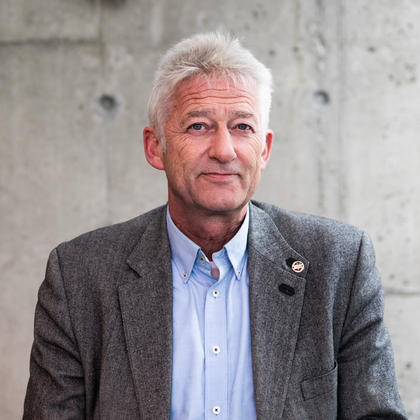The NMF does not compromise on quality and safety
The high Nordic standards in the field of marine engineering are under increasing pressure, both in terms of the quality of education, personnel requirements, certifications, and other conditions in the marine engineers' traditional and new workplaces.
The reason for this is an enormous and steadily increasing demand, but the NMF firmly rejects lowering the high standards, as the consequence of doing so would be reduced safety. This clear message was conveyed at the meeting in Reykjavík. It has never been more important than now to raise the professional banners and maintain the high standards and proud traditions that characterize the field of marine engineering in the Nordic countries.
Such was the main message at the recently held semi-annual meeting of the NMF (Nordic Engineer Officers' Federation) – the union of Nordic marine engineer associations. This time, the meeting was held in Reykjavik, Iceland.
It is the high demand for marine engineers, both on land and at sea, that has the Nordic trade unions sounding the alarm because it is a fact that the private sector – both maritime and land-based – state and municipal utility companies as well as other public workplaces are fighting as never before for the high competences that marine engineers possess.
The demand is enormous worldwide, and there is no sign that it will decrease in the foreseeable future – on the contrary, the demand will likely increase at an even faster pace in the coming years with the green energy transition, which is a high political priority in all the Nordic countries and in large parts of the rest of the Western world.
This is something to be celebrated in the field of marine engineering, but there is also a downside. The increasing demand is putting the high standards in our part of the world in general and in the Nordic region in particular under pressure. For example, there could be pressure from political authorities to establish less demanding educational programs and attempts to make it easier to obtain exceptions from existing laws and regulations.
In the NMF and the individual member countries, there is a high awareness of this development. This is especially true for the Danish Association of Marine Engineers, which initiated the debate at the NMF meeting due to the sharply increasing demand for marine engineers in Denmark.
See video, The Danish situation:
Iceland, in particular, has introduced a system to ensure optimal safety at sea. It is a fully digitized system in which all information about each vessel, its specifications, and licenses are linked with information about the crew – that is, details about each individual crew member and their competencies and licenses.
At the NMF meeting in Reykjavik, Helgi Jóhannesson, head of the maritime department at the Icelandic Transport Authority, presented their system. He also brought along statistics that clearly showed a significant decrease in the number of accidents at sea and, notably, a marked reduction in fatal accidents, achieved since the beginning of the millennium through the systematic implementation of the system over several years. This has mainly been accomplished through a comprehensive simplification of the legislative and regulatory framework, consolidation of various entities that previously regulated and controlled various maritime materials, actors, and activities, the use of advanced technology, and complete digitization.
In the Icelandic Association of Marine Engineers, there isn't unanimous enthusiasm for the system, partly because the association is no longer involved in making important decisions, such as when processing applications for exemptions.
But Odd Rune Malterud, NMF's president, was nevertheless impressed and pointed out that the quality and efficiency of any system will always depend on how it is used and managed. He believes that the Icelandic solution has the necessary tools for the authorities to ensure optimal safety at sea.
See video, The NMF president on the situation:







